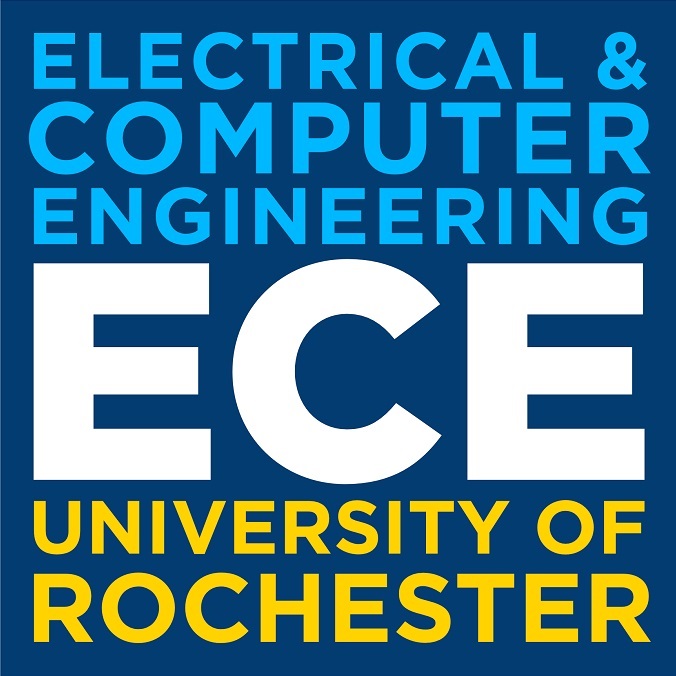ECE Seminar Lecture Series
Histotripsy Cancer Treatment: The Road from Bench to Bedside
Zhen Xu, PhD., Professor of Biomedical Engineering, Radiology, and Neurosurgery, University of Michigan
Wednesday, April 17, 2024
Noon–1 p.m.
1400 Wegmans Hall
Histotripsy is a non-invasive, non-ionizing, and mechanical ultrasound ablation technique that was invented by Dr. Xu and her colleagues at the University of Michigan. Using microsecond-length, high-pressure ultraso und pulses applied from outside the body and focused to the target diseased tissue, histotripsy produces a cluster of energetic cavitation microbubbles in the target tissue using the endogenous nanometer gas pockets. The rapid expansion and collapse of the cavitation microbubbles produce high local mechanical strain and stress to disrupt the target tissue into liquid-appearing acellular debris with millimeter accuracy. Pre-clinical studies have shown that ultrasound image-guided histotripsy can noninvasively and mechanically disrupt the target tumor while preserving the large normal vessels and other critical structures (e.g., bile ducts). Histotripsy tumor ablation results in tumor reduction or complete eradication, increased survival benefit, and reduced metastasis (abscopal effect). Histotripsy also induces significant innate and adaptive immune response and abscopal effect in murine tumor models. Dr. Xu is a pioneer and leader of histotripsy and co-founder of HistoSonics. Her work has led to the FDA approval of non-invasive liver tumor treatment using the EdisonTM ultrasound image-guided robotic assisted histotripsy platform (HistoSonics), which is based on the technology licensed from Dr. Xu’s lab. In addition, there are ongoing multi-center clinical trials in the U.S. and Europe on histotripsy treatment of renal tumors using the EdisonTM system. Dr. Xu will talk about the mechanism and instrumentation of histotripsy, the latest pre-clinical and clinical progress on histotripsy cancer treatment, and her journal to bring this technology from bench to bedside.
und pulses applied from outside the body and focused to the target diseased tissue, histotripsy produces a cluster of energetic cavitation microbubbles in the target tissue using the endogenous nanometer gas pockets. The rapid expansion and collapse of the cavitation microbubbles produce high local mechanical strain and stress to disrupt the target tissue into liquid-appearing acellular debris with millimeter accuracy. Pre-clinical studies have shown that ultrasound image-guided histotripsy can noninvasively and mechanically disrupt the target tumor while preserving the large normal vessels and other critical structures (e.g., bile ducts). Histotripsy tumor ablation results in tumor reduction or complete eradication, increased survival benefit, and reduced metastasis (abscopal effect). Histotripsy also induces significant innate and adaptive immune response and abscopal effect in murine tumor models. Dr. Xu is a pioneer and leader of histotripsy and co-founder of HistoSonics. Her work has led to the FDA approval of non-invasive liver tumor treatment using the EdisonTM ultrasound image-guided robotic assisted histotripsy platform (HistoSonics), which is based on the technology licensed from Dr. Xu’s lab. In addition, there are ongoing multi-center clinical trials in the U.S. and Europe on histotripsy treatment of renal tumors using the EdisonTM system. Dr. Xu will talk about the mechanism and instrumentation of histotripsy, the latest pre-clinical and clinical progress on histotripsy cancer treatment, and her journal to bring this technology from bench to bedside.
Zhen Xu is Professor of Biomedical Engineering, Radiology, and Neurosrugery at the University of Michigan, Ann Arbor, MI. Her research focuses on ultrasound therapy and imaging, particularly histotripsy. She is a pioneer and leader of histotripsy, a non-invasive mechanical therapeutic ultrasound technology based on cavitation. She has developed histotripsy for cancer, neurological, and cardiovascular applications. Her work has led to the FDA approval of histotripsy treatment of liver tumors. She received the IEEE Ultrasonics, Ferroelectrics, and Frequency Control (UFFC) Outstanding Paper Award in 2006; National Institute of Health (NIH) New Investigator Award at the First National Institute of Biomedical Imaging and Bioengineering (NIBIB) Edward C. Nagy New Investigator Symposium in 2011, The Frederic Lizzi Early Career Award from The International Society of Therapeutic Ultrasound (ISTU) in 2015, the Fellow of American Institute of Medicine and Bioengineering (AIMBE) in 2019, and The Lockhart Memorial Prize for Cancer Research in 2020, and the University of Michigan Distinguished Innovator Award in 2023. She is an associate editor for IEEE Transactions on UFFC and Frontiers in Biomedical Engineering. She has served as the VP of IEEE Ultrasonics and an elected board member of ISTU. She is a principal investigator of grants funded by NIH, Office of Navy Research, American Cancer Association, and Focused Ultrasound Foundation. She has 40+ issued US and international patents and is a co-founder of HistoSonics, a startup company developing histotripsy for oncological applications. HistoSonics has raised $200+ millions with 120+ employees.

